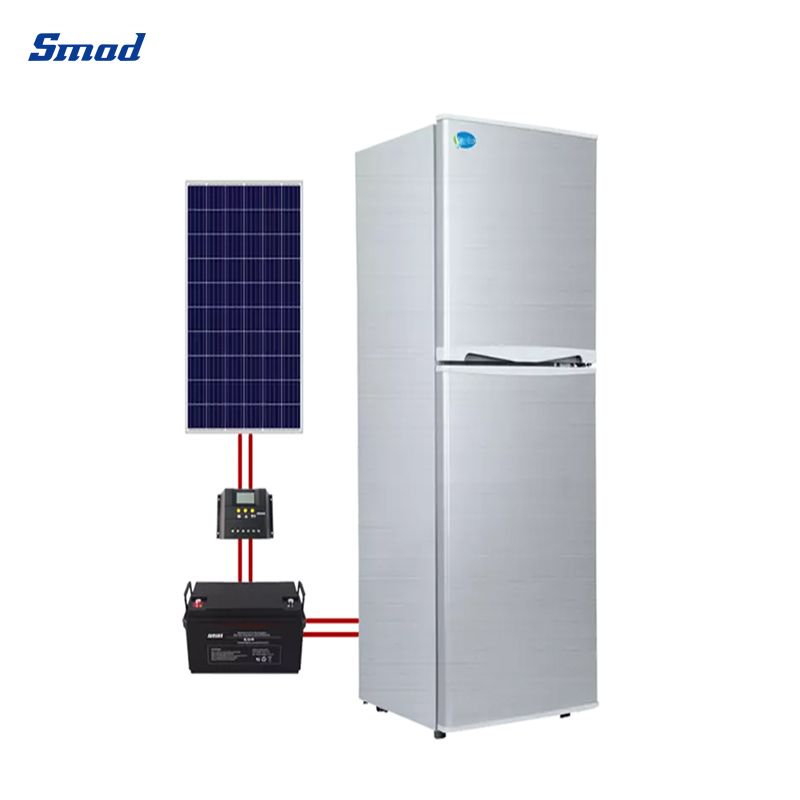A solar refrigerator can be a great investment for your off-grid living needs.
A solar refrigerator can be a great investment for your off-grid living needs.
Blog Article
Discover the Secret Advantages of Implementing Solar Fridge in Your Energy Approach
Integrating solar refrigerators into an energy technique offers a plethora of benefits that expand beyond simple expense financial savings. These systems not only add to lowered carbon discharges but additionally enhance energy freedom by making use of eco-friendly solar power.
Environmental Effect
Reducing carbon emissions is one of one of the most substantial benefits of solar refrigerators, as these devices operate using renewable resource sourced from the sunlight. Unlike conventional fridges that count on fossil gas or grid electricity, solar fridges harness solar power, therefore decreasing the carbon impact connected with energy intake. This transition to renewable energy adds to a decrease in greenhouse gas discharges, which is critical in combating environment adjustment.
Furthermore, solar fridges use a sustainable service in regions with minimal access to electricity. By supplying reputable refrigeration without the requirement for standard source of power, they aid preserve food and medicines, consequently improving food safety and public health. Using solar power additionally reduces dependence on non-renewable sources, promoting a much more lasting energy landscape.
In addition, the manufacturing and operation of solar fridges tend to have a reduced environmental impact contrasted to conventional designs. By utilizing products that can typically be recycled and carrying out energy-efficient innovations, these devices add to the total decrease of waste and contamination. As a result, the ecological benefits of solar fridges expand past their initial procedure, promoting a greener economy and sustaining eco-friendly preservation efforts (solar refrigerator).
Expense Financial Savings

The initial financial investment in a solar fridge might be greater than traditional models; however, the long-term financial savings on energy costs can rapidly offset this cost. Additionally, solar fridges typically feature low maintenance needs, as they have less relocating components compared to standard units. This causes reduced fixing prices over their lifespan.
Additionally, solar refrigerators are specifically advantageous in remote or off-grid areas where electricity accessibility can be restricted or pricey (solar refrigerator). In such scenarios, the cost of establishing a solar refrigerator can be substantially lower than linking to the grid or relying upon diesel generators
Ultimately, the expense savings created by solar fridges not only enhance economic sustainability but also add to a much more reliable energy technique. As the innovation remains to advance, these savings are likely to boost, making solar fridges an increasingly appealing choice for energy-conscious consumers.
Power Freedom
The dependence on solar power for refrigeration not just brings about considerable price financial savings yet likewise cultivates better power independence for individuals. By taking advantage of solar energy, individuals and businesses can lower their reliance on typical energy resources, which are usually subject to price fluctuations and supply uncertainties. This shift enables users to reduce the influences of climbing power expenses and potential scarcities related to traditional electrical power grids.
Applying solar refrigerators enables users to generate their very own electrical power, offering a self-sufficient remedy that is especially helpful in remote or off-grid places. This freedom from the main power grid encourages individuals to preserve regular refrigeration without disruptions triggered by power failures or grid failings. Consequently, solar refrigerators can play a crucial duty in improving food safety by ensuring that disposable things stay managed despite outside energy conditions.

Dependability and Resilience
Solar refrigerators are renowned for their integrity and longevity, making them an engaging option for both domestic and industrial applications. These appliances are designed to withstand a selection of ecological problems, making certain regular performance over time. The lack of relocating parts in their solar-powered look at here mechanisms lessens deterioration, substantially extending their life-span contrasted to conventional fridges.
Producers frequently make use of high-grade materials and robust building and construction methods, which further improve the resilience of solar fridges. Lots of designs are developed to stand up to extreme temperature levels, moisture, and even deterioration, especially those planned for outside or remote installments. This resilience is essential, especially in areas with limited access to fix solutions or substitute parts.
In addition, solar refrigerators usually include warranties that mirror their reliability, supplying customers with comfort concerning their investment - solar refrigerator. Users can depend upon these systems for nonstop service, even throughout power failures or in off-grid areas. Therefore, integrating solar refrigerators right into your power technique not just advertises sustainability but likewise makes certain that your refrigeration needs can be met dependably and efficiently over the long term
Adaptability and Accessibility
A standout feature of solar refrigerators is their exceptional adaptability and accessibility, making them appropriate for a variety of applications. These energy-efficient home appliances can be utilized in various settings, from domestic homes and remote cabins to industrial establishments and outside events. Their capability to operate separately of traditional power resources permits them to flourish in off-grid places, where standard refrigeration read more choices might be unwise or not available.
In addition, solar refrigerators been available in diverse sizes and configurations, accommodating the needs of different customers. Whether for maintaining food and drinks in a house or keeping the cool chain in clinical centers, these systems can be tailored to meet specific needs. Their portability even more improves their ease of access, as many models are made for simple transport, enabling customers to capitalize on solar refrigeration in different atmospheres.

Conclusion
In conclusion, the application of solar fridges supplies numerous advantages that align with sustainable energy methods. Their favorable environmental impact is coupled with substantial expense financial savings, boosting energy independence and integrity. The toughness and versatility of these systems make them suitable for diverse applications, making sure constant refrigeration also in challenging conditions. By integrating solar refrigerators into power solutions, individuals and organizations contribute to a greener economic situation while reducing dependancy on standard power sources.
Report this page